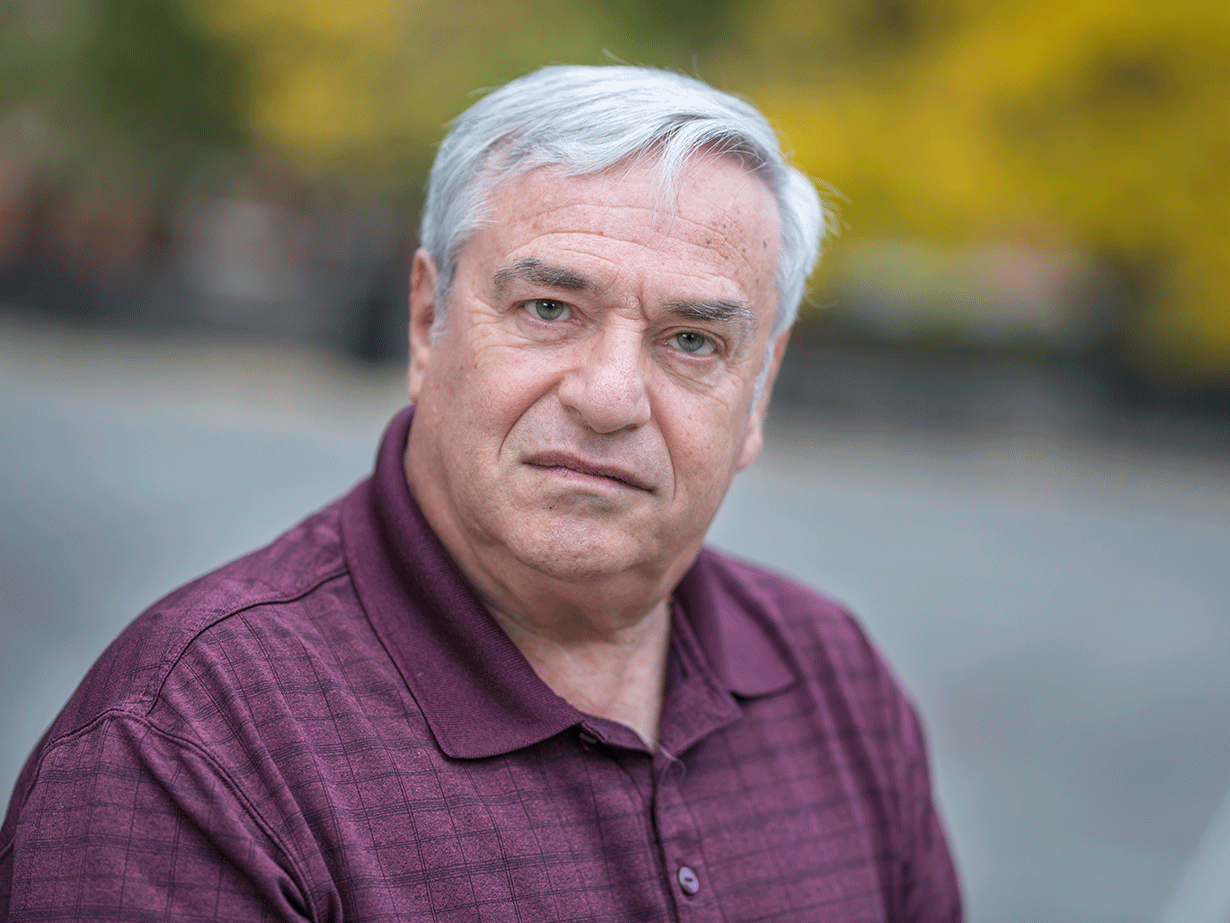By the time he was seven, Eliezer Schwartz had already learned that if he ran fast enough and threw a lot of stones, he could protect himself from the schoolyard bullies and wouldn’t have to bother his parents with his troubles.
Schwartz was born in 1947 in Arad, Romania, to an orthodox Jewish family. Although many family members had been lost to concentration camps during the Holocaust, his parents and older brother survived. Growing up under Soviet occupation, however, Schwartz experienced a great deal of anti-Semitism, such as the school bullying. Every year, the family applied to emigrate to Israel.
“One of the most important parts of the Israeli constitution is the law of return. It means that Jews that immigrated to Israel, by definition, become citizens,” he explains.“The idea of the Holy Land was something I grew up with. I looked forward to it.”
Finally, in 1958, the Romanian government approved their application. By train, the family travelled through the Alps and then took a four-day boat trip across the Mediterranean.
On a hot January day, the family sailed into the Israeli port of Haifa. When the boat docked in Israel, Eliezer Schwartz’s father fell to the ground and wept. Steam rose from the pavement as eleven-year-old Schwartz thought about his new life in Jerusalem. His family had waited a long time for this moment. Finally, they could live and practice their religion without fear.
It felt like a fresh start to life, and they settled into their home on the outskirts of Jerusalem. The first few years in Israel, Schwartz spent much of his time walking the city’s streets. “At the time, almost every part of the city had a cultural flavor of the countries the Jews came from,” he remembers. “There was a great deal of intercultural exposure from different parts of the world.”
Schwartz wanted to be a rabbi, and attended an elite orthodox seminary high school, the only school of its kind at the time. One of the mandatory courses was comparative theology, although at the time, Schwartz says, “It was unheard of to allow students to be exposed to different religions.”
Schwartz learned of mysticism and different religions and philosophies. “School was a very powerful experience, he says, “Slowly I started to change. By the time I reached my senior year, I knew that orthodoxy was not for me, and I didn’t want to pursue rabbinical studies. I was not a practicing Jew.”
His parents opposed his decision, and Schwartz honored their views. He chose to cover his head in front of them and on Saturdays, he’d walk to his family’s home instead of riding the bus. “I tended to be very respectful when I visited my parents. I didn’t want to insult them,” he says.
After high school, Schwartz completed his three years of compulsory military service. He fought in the 1967 war between Israel and the neighboring states of Jordan, Egypt and Syria. His military service led him to work as a counselor for children in a psychiatric hospital, and he developed a passion for psychology. Schwartz attended Hebrew University in Jerusalem and graduated with his bachelors in Psychology and Special Education 1973.
At the psychiatric hospital, he met his first wife Susan Lorge, a social worker from Chicago. The couple married in 1972, and moved to Chicago in 1973 to be closer to Susan’s family. They raised three children while Schwartz attended the Illinois Institute of Technology, Chicago for his doctorate degree, earning his doctorate in psychology in 1977. His specialty is working in severe psychopathology, helping people who suffer from bi-polarity to a combination of medical and emotional problems.
Schwartz taught at Illinois School of Professional Psychology, Chicago from 1981-2000.
In 2003 Susan passed away, and Schwartz remarried in 2006 to Dorota Krezolek, a Polish physician completing her hospital residency in Chicago. The couple moved to southwestern Washington state in 2016 to be closer to Schwartz’s oldest daughter and grandkids in Portland.
Shortly after moving to the Northwest, Schwartz began teaching graduate psychology courses at Pacific University. Now he’s a full-time psychology professor. In a way, he feels he has fulfilled his calling as a rabbi.
“The word ‘rabbi’ means teacher. The Jewish clergy, unlike other clergies, are not intermediaries between God and people. They’re teachers and educators,” he explains. “In my own way, I’m still a rabbi. I’m just teaching something else. I’m teaching people values, attitudes, ethics, and how to help others.”
Schwartz feels comfortable with his relationship to his spirituality. “Religion and spirituality are natural human longings. I’m a cultural Jew, and I am a proud Jew. Orthodoxy was a good beginning for me, but it didn’t work out. I don’t feel any guilt. I am very settled and content with my own individualized sense of where I am and my relationship to the divine.”

